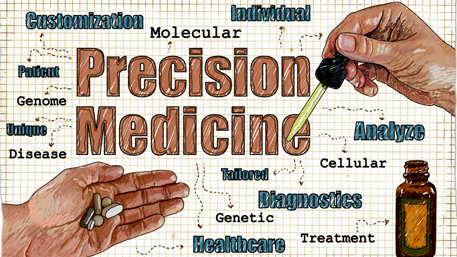
05/15/2021
Hot Topics of the Day are picked by experts to capture the latest information and publications on public health genomics and precision health for various diseases and health topics. Sources include published scientific literature, reviews, blogs and popular press articles.
Sign up MyPHGKB to receive the daily hot topic email alert.
Archived Hot Topics of the Day By Date
Precision medicine needs an equity agenda
Nature Medicine editorial, May 14, 2021
An ensemble of neural networks provides expert-level prenatal detection of complex congenital heart disease
R Arnaout et al, Nature Medicine, May 14, 2021
Deep learning for detecting congenital heart disease in the fetus
SA Morris et al, Nature Medicine, May 14, 2021
Deep learning in histopathology: the path to the clinic
J van der Laak et al, Nature Medicine, May 14, 2021
Mobile Health: making the leap to research and clinics
JP Ku et al, NPJ Digital Medicine, May 14, 2021
Exploring the feasibility of using real-world data from a large clinical data research network to simulate clinical trials of Alzheimer’s disease
Z Chen et al, NPJ Digital Medicine, May 14, 2021
Impact of BNT162b first vaccination on the immune transcriptome of elderly patients infected with the B.1.351 SARS-CoV-2 variant
L Knabl et al, MEDRXIV, May 14, 2021
Immune Responses to COVID-19 mRNA Vaccines in Patients with Solid Tumors on Active, Immunosuppressive Cancer Therapy
RT Shroff et al, MEDRXIV, May 14, 2021
Cardiovascular vulnerability predicts hospitalisation in primary care clinically suspected and confirmed COVID-19 patients: a model development and validation study
FS von Royen et al, MEDRXIV, May 14, 2021
SARS-CoV-2 lineage dynamics in England from January to March 2021 inferred from representative community samples
O Eales et al, MEDRXIV, May 14, 2021
Transmission roles of symptomatic and asymptomatic COVID-19 cases: a modeli
J Tan et al, MEDRXIV, May 14, 2021
How the United States Beat the Variants, for Now- The country has managed to avoid a variant-fueled spike in coronavirus cases. Scientists say we were lucky.
C Zimmer et al, NY Times, May 14, 2021
Disclaimer: Articles listed in Hot Topics of the Day are selected by Public Health Genomics Branch to provide current awareness of the scientific literature and news. Inclusion in the update does not necessarily represent the views of the Centers for Disease Control and Prevention nor does it imply endorsement of the article's methods or findings. CDC and DHHS assume no responsibility for the factual accuracy of the items presented. The selection, omission, or content of items does not imply any endorsement or other position taken by CDC or DHHS. Opinion, findings and conclusions expressed by the original authors of items included in the Clips, or persons quoted therein, are strictly their own and are in no way meant to represent the opinion or views of CDC or DHHS. References to publications, news sources, and non-CDC Websites are provided solely for informational purposes and do not imply endorsement by CDC or DHHS.
- Page last reviewed:Feb 1, 2024
- Page last updated:Apr 19, 2024
- Content source:







